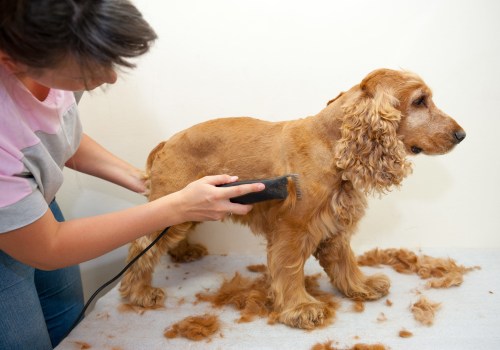If you think your pup has an eye infection, it's essential to take them to the vet as soon as possible. Any eye issue in dogs should be treated by a veterinarian to avoid causing unnecessary pain and to reduce the risk to the dog's sight. Your vet will identify the cause of your dog's eye discomfort and create a treatment plan. This may involve treating an underlying condition, such as an allergy, autoimmune disease, or tumors.
Systemic and topical medications may be necessary to treat problems related solely to the eyes. Do not use over-the-counter eye drops designed for humans, such as Visine. Eye infections in dogs have a wide range of causes. Primary eye infections are not as common in dogs as they are in cats and people. Eye discharge and irritation are more commonly associated with other underlying conditions, such as allergies, dry eye, and structural abnormalities of the eyelids, leading to secondary bacterial eye infection.
This means that many eye infections in dogs are not contagious. You might notice that your pup is rubbing their eye trying to find relief from the discomfort. Or you may observe redness accompanied by unusual discharge in that area. Either way, it's time to call the vet and ask for advice. Here's what to keep in mind when it comes to your dog's eye health. The main symptoms of eye infections in dogs include cloudy eyes, squinting or blinking constantly, difficulty walking or appearing dizzy due to disrupted balance, and trying to scratch their eye to stop the pain.
If you notice any of these symptoms, contact your vet as soon as possible. While eye infections in dogs are not life-threatening, they are very uncomfortable and could indicate underlying health problems that need to be resolved. And just as important, many eye problems that seem trivial can permanently affect your dog's vision if left untreated. It's often worrying to see that your dog's eyes are affected by redness or unusual secretions. But thankfully, there are plenty of treatments available for dog eye infections, so it's likely that your pup will return to normal relatively soon, as long as you take them to the vet when the first signs of problems appear.
The treatment your vet will recommend depends on the type of eye infection or eye problem you discover. Antibiotics are prescribed for bacterial infections, while antihistamines or other anti-inflammatory drugs may be better suited to helping the puppy deal with eye problems caused by allergies. In other cases, surgery may be necessary to resolve eyelash abnormalities or tear duct obstruction. Dogs love to explore their environment, so keeping them and their eyes safe from danger can be a difficult task even for the most devoted owners. Fortunately, your dog's eyelids and eyelashes protect the delicate eye underneath very well.
However, if your dog frequently suffers from eye injuries, you might consider getting them some form of eye protection.We believe that people and pets are “better together”. Our program promises to support you at every stage of your journey. An infected eye will usually look cloudy and cause discomfort for your pet. They may squint or blink constantly or have difficulty walking or appear dizzy due to inadequate vision.
Your pet may also try to scratch their eye in an attempt to stop the pain. If you notice any of these symptoms, don't hesitate to contact your vet for help and advice.











Leave a Comment